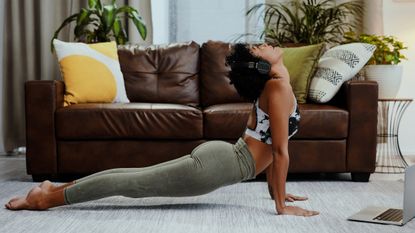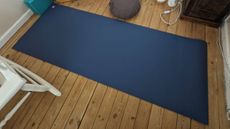Yoga has many benefits. It can make you more flexible. It can help you relax. It can improve your core strength. But apparently it'll also make you smarter. Sounds like a lie a yoga instructor might tell you, but this one is backed up by Actual Science.
A study asked 30 healthy young students into two groups, one of which practiced yoga regularly over the period of the experiment, and a control group, who did no yogic practices or physical exercises for the duration of the study. At the end, the group who had been doing regular yoga recorded significant improvements in cognitive function. The improvements spanned a range of areas too, including memory, attention, concentration, and executive function.
The study also found the yoga group ended up with a significantly reduced resting heart rate, which is more good news for the noggin: this apparently indicates a relaxed state of physiology, increased mental alertness, and can also mean an improvement in a person's spatial or verbal skills.
How much yoga do you need to do to see the effects? Er… potentially quite a bit. Study participants practiced for an hour and a half, six days a week, for five months. The practice involved a mixture of easy asanas, meditation, and pranayama (breathing exercise). You could probably start off with 2-3 shorter sessions a week and see how you you from there, though.
If this has convinced you to kick off your own regular practice, all you really need is one of the best yoga mats, to keep you stable and comfortable through your poses, but you might also benefit from picking up a pair of the best yoga pants and adding props such as a yoga block to help you tackle trickier poses.











